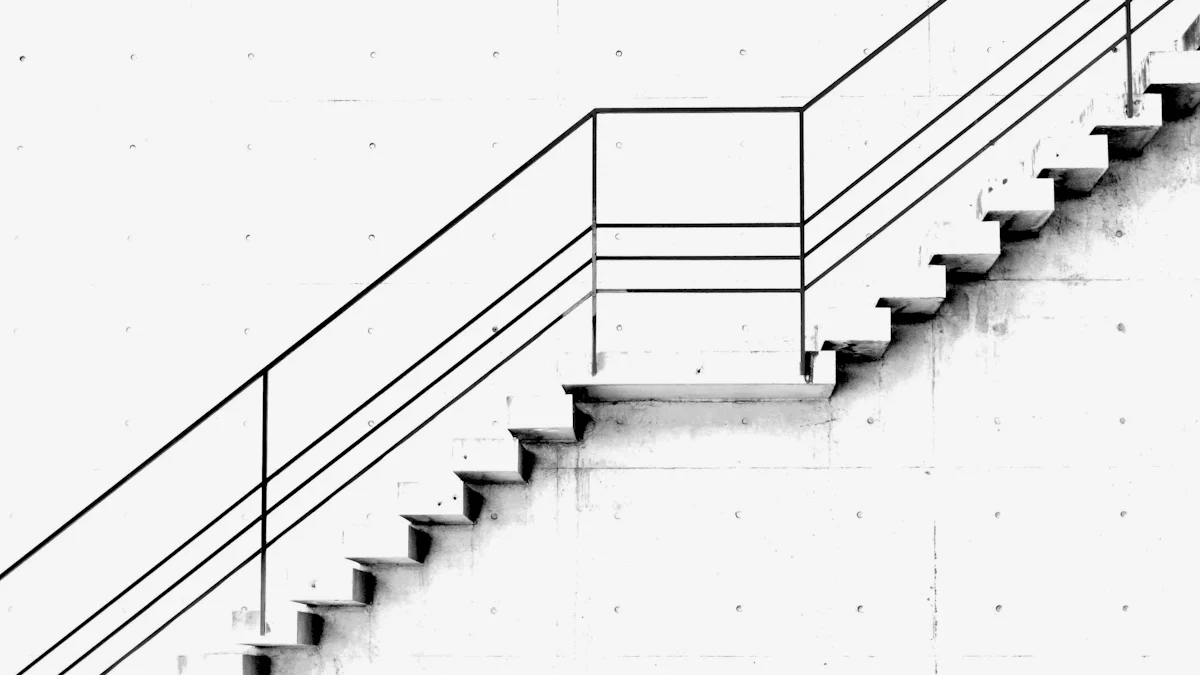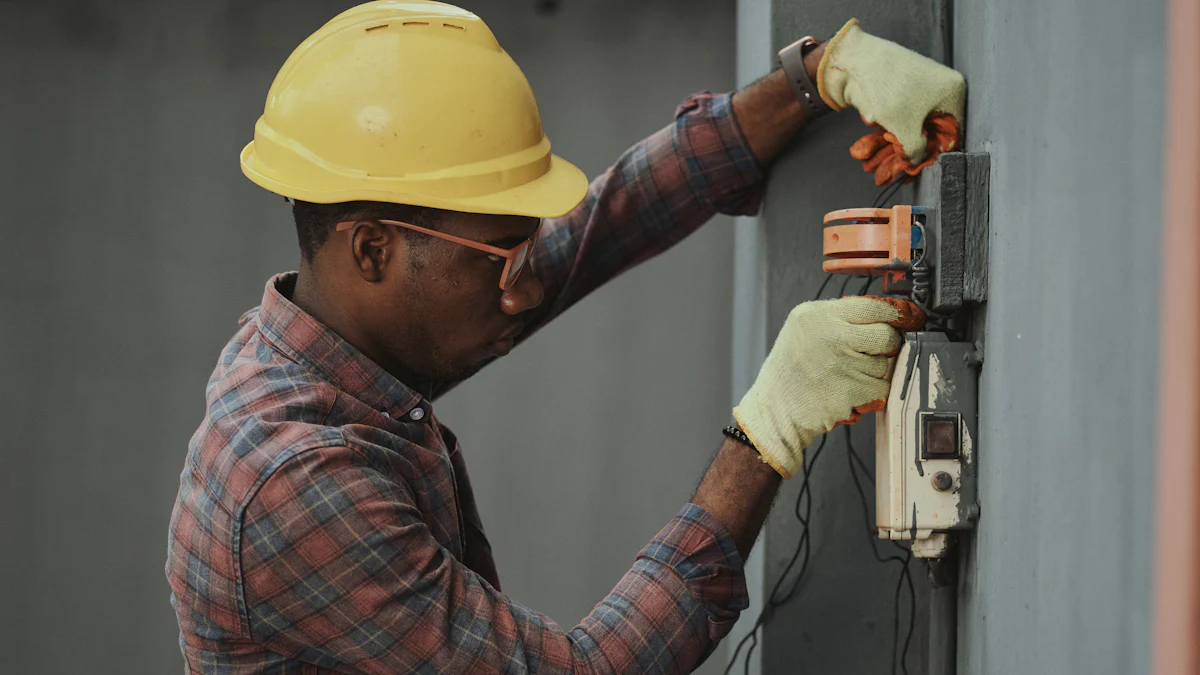
When it comes to outdoor applications, the choice of aluminum ramp treads plays a crucial role in ensuring longevity and safety. Durability is paramount in such settings, where exposure to various elements can impact the lifespan of materials. The comparison between aluminum ramp treads and traditional materials aims to shed light on which option offers superior performance in terms of resilience and reliability.
Durability Factors

Weather Resistance
When it comes to aluminum ramp treads, their exceptional weather resistance sets them apart from traditional materials like wood and steel. The aluminum construction, combined with a natural protective oxide coating, ensures that these treads can withstand the harshest outdoor elements without corroding or deteriorating over time. In contrast, wood is susceptible to rotting and warping when exposed to moisture, while steel may rust and weaken in corrosive environments.
Longevity
The rust-proof nature of aluminum ramp treads contributes significantly to their longevity. Unlike traditional materials that may degrade over time due to rust or decay, aluminum remains structurally sound for years to come. Studies comparing aluminum with steel have shown that while steel is technically stronger due to its high carbon content, aluminum’s durability and resistance to corrosion make it a more reliable choice for long-term outdoor use.
Material Strength
In terms of material strength, aluminum ramp treads offer a unique combination of lightweight design and impressive durability. While steel is known for its strength, aluminum provides a lighter alternative without compromising on robustness. Aluminum’s flexibility and resistance to dents make it an ideal choice for applications where weight is a concern but strength cannot be compromised.
Safety and Maintenance

Slip Resistance
Aluminum ramp treads prioritize safety with their innovative raised traction button design, enhancing grip and stability for users. This unique feature ensures that individuals walking on these treads have a secure footing even in wet or slippery conditions. In contrast, traditional materials like wood and steel may lack such specialized designs, increasing the risk of slips and falls, especially in outdoor settings where surfaces can become hazardous.
When comparing aluminum ramp treads to traditional materials in terms of slip resistance, the difference lies in the intentional engineering of safety features. While wood and steel may offer some friction naturally, they do not provide the same level of enhanced traction as aluminum’s raised buttons. This distinction underscores the importance of investing in materials specifically designed for optimal safety performance.
Maintenance Requirements
One of the significant advantages of aluminum ramp treads is their low maintenance needs, making them a practical choice for long-term use. Unlike wood that requires regular staining or sealing to prevent deterioration, aluminum treads are virtually maintenance-free. Similarly, steel may need protective coatings to prevent rusting over time, adding to maintenance costs and efforts.
Comparing the maintenance needs of aluminum ramp treads with traditional materials reveals a clear efficiency in favor of aluminum. The durability and corrosion-resistant properties of aluminum eliminate the need for constant upkeep, saving both time and money in the long run. This aspect makes aluminum an attractive option for those seeking durable solutions without the burden of extensive maintenance routines.
Installation Ease
The installation process for aluminum ramp treads is straightforward and user-friendly, allowing for quick setup without specialized tools or skills. These treads are designed to be easily installed by following simple instructions, making them accessible even to DIY enthusiasts. In contrast, traditional materials like wood often require precise cutting and fitting, which can be labor-intensive and time-consuming.
When comparing the installation ease between aluminum ramp treads and traditional materials, it becomes evident that aluminum offers a hassle-free solution. The lightweight nature of aluminum makes handling and positioning the treads effortless compared to heavier alternatives like steel. This simplicity not only saves time during installation but also ensures a smooth process for achieving safe and durable outdoor pathways.
Cost-Effectiveness
Initial Costs
When considering the initial cost of aluminum ramp treads, it’s essential to evaluate the long-term benefits they offer. Aluminum extrusions typically range from $500 to $5,000, reflecting their superior quality and durability. While the upfront investment may seem higher compared to traditional materials like wood or steel, the cost-effectiveness of aluminum becomes evident over time. The low maintenance requirements of aluminum make it a cost-efficient choice in the long run.
In contrast, natural timber and steel may have lower initial costs but often come with higher maintenance expenses down the line. Aluminium, known for its resistance to rusting, fading, and discoloration, provides a sustainable solution that minimizes ongoing upkeep costs. This makes aluminum ramp treads a wise investment for those seeking durable and economical outdoor surfacing options.
Long-term Savings
The true value of aluminum ramp treads lies in the substantial long-term savings they offer. Thanks to their low maintenance needs and exceptional durability, aluminum treads outshine traditional materials in terms of cost-effectiveness. By choosing aluminum, users can avoid frequent staining, sealing, or protective coatings required by wood or steel.
Moreover, aluminum is recognized as an environmentally friendly option due to its recyclability and reusability. Being highly energy-efficient and sturdy, aluminum ensures a secure build that lasts for years without significant wear or degradation. The ease of customization, installation, and replacement further contributes to the overall affordability of aluminum ramp treads, making them a smart choice for both budget-conscious individuals and sustainability advocates.
In conclusion, the comparison between aluminum ramp treads and traditional materials highlights the unparalleled durability of aluminum in outdoor settings. Testimonials from experts emphasize aluminum’s long-lasting performance due to its natural protective oxide coating, making it a sustainable and reliable choice. While steel may offer technical strength, aluminum’s lightweight nature and resistance to corrosion position it as the superior material for long-term use. Readers are encouraged to prioritize durability by opting for aluminum ramp treads to ensure safety and longevity in their outdoor applications.









